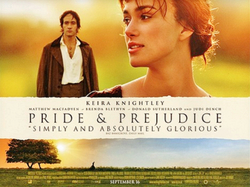Flora Tristan believes that prostitution, though it can be physically deadly to women, killing them usually in three to four years (eight if they’re lucky), definitely kills their soul.
It is the oppression of women, forced to constrain to the social acceptance of what men want, that leads women into the life of prostitution. They are required to choose an oppressed life as a wife with an unbreakable marriage or be a social reject in which the only way to make money is to use the only property given in this world: their own bodies.
Tristan then discusses the economical distress many women are forced into purely because of their gender, with male heirs receiving most inheritance, while “girls have only small dowries unless they have no brothers”(2 Tristan). This is another reason she offers as to why women would be forced into the occupation. Poverty and hunger are also key players in Tristan’s understanding for why women would enter into prostitution.
After discussing her beliefs for possible cause of prostitutes, Flora continues on to describe her own experience at a tavern on Waterloo Road where many women converged with pimps and customers, her shock and disbelief at the “revolting” occurrences amongst the aristocrats that visit such places and the “diabolical debauchery” forced onto the women, such as their dresses becoming covered in random stains (4 Tristan).
Thomas Hood has a sympathetic attitude throughout his poem “The Bridge of Sighs” towards the prostitute that kills herself in the poem, throwing herself into the Thames River; a very common death amongst the prostitutes of London. Throughout the poem he speaks of the woman with tender words, “Take her up tenderly, Lift her with care”, repeated in lines 5-6 and 80-81 for emphasis. He treats the woman with the respect she was not given in her life, “loving, not loathing” (14). He wants to make us aware of her pain and suffering, to not dismiss her as she was in life, “Picture it—think of it, Dissolute Man! Lave in it, drink of it,”, Hood forces us to pay her that attention, painting for us the image of her dripping wet, with blindly staring eyes (76-78).
In the fifth stanza, we are able to surmise her life occupation, discussing her “rash and undutiful” acts that are “past all dishonour” (23-24). Instead, in her death, she is free of all of those ugly acts, leaving behind nothing but her young beauty, taken too soon. The last stanza also references “Her evil behaviour” that she leaves behind by entering the afterlife (104).
I think the poem represents the struggle of prostitution from the women’s perspective better than Flora Tristan tries to in her article because her opinion remains too strong throughout her account. Though she is trying to come to an understanding in a world she herself is not apart of, her opinion of the “horrible” situation remains, showing her true feelings though she is trying to bypass her prejudice opinions, comprehending how these women could possibly find themselves in this situation, willing to give so much of themselves for only money. Hood however treats the poor woman with a tender care, her life’s actions having no affect on his opinion. Before line 67 he discusses her standing in the March wind before the flowing river, trembling not from fear of death but merely the cold, “Mad from life’s history, Glad to death’s mystery,” (67-68). We get an insight into her mind, her desperation but at the same time her acceptance in what her life was and the happiness to be rid of it. There’s no undertone of disgust in Hood’s poem, as there is throughout Tristan piece, though she does attempt to understand the act of prostitution in a way hood bypasses, focusing entirely on the woman herself and forgoing the sinful acts in her life.
It is not the act of prostitution, however, that causes the woman to kill herself, at least not entirely. If I’m reading the poem correctly on line 52 “Love, by harsh evidence,” means she has become pregnant such as the harsh evidence pregnancy would provide, though it could also be some sort of disease I guess. You could say it was a man’s fault for her death, but I do not think the poem is intentionally blaming men, not in the way Tristan does throughout her critique.

 is a
is a